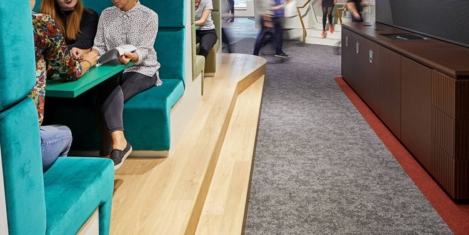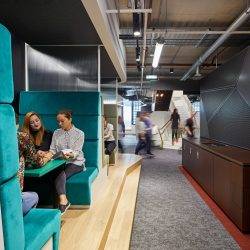January 25, 2019
Government announces protections for pregnant mums and new parents returning to work
 Pregnant women and new parents returning to work after having children are to be further protected from unfairly losing their jobs under new proposals set out by the UK government. The consultation, launching today (25 January 2019) and running to 5 April, proposes that the legal protection against redundancy for pregnant women and new mothers on maternity leave is extended so that it continues for up to 6 months after they return to work. It will also seek views on affording the same protection to parents returning from adoption leave or shared parental leave.
Pregnant women and new parents returning to work after having children are to be further protected from unfairly losing their jobs under new proposals set out by the UK government. The consultation, launching today (25 January 2019) and running to 5 April, proposes that the legal protection against redundancy for pregnant women and new mothers on maternity leave is extended so that it continues for up to 6 months after they return to work. It will also seek views on affording the same protection to parents returning from adoption leave or shared parental leave.


























 An acute lack of supply in Edinburgh’s city centre will push up office rents to over £35 per sq ft in 2019 according to the latest estimates by Savills, which suggests that rental increases and lack of supply may cause certain organisations to consider opportunities on the city’s western periphery. The latest research from the firm shows office take-up in Edinburgh in 2018 totalled 950,000 sq ft – 18 percent ahead of the 10-year annual average – as the city continues to see robust levels of demand from across a number of key sectors and a continued focus amongst occupiers on the city centre. However, despite strong occupier demand, there was a decline in office take-up in 2018, compared to 2017 (1.04 million sq ft) which the firm attributes to a lack of good quality, city centre office supply. Edinburgh’s city centre office availability has been reducing since 2012 and take-up activity during 2018 has seen the majority of new developments being wholly or partially pre-let. This lack of supply is forcing an increasing number of occupiers to re-gear leases on existing offices against a lack of alternative options.
An acute lack of supply in Edinburgh’s city centre will push up office rents to over £35 per sq ft in 2019 according to the latest estimates by Savills, which suggests that rental increases and lack of supply may cause certain organisations to consider opportunities on the city’s western periphery. The latest research from the firm shows office take-up in Edinburgh in 2018 totalled 950,000 sq ft – 18 percent ahead of the 10-year annual average – as the city continues to see robust levels of demand from across a number of key sectors and a continued focus amongst occupiers on the city centre. However, despite strong occupier demand, there was a decline in office take-up in 2018, compared to 2017 (1.04 million sq ft) which the firm attributes to a lack of good quality, city centre office supply. Edinburgh’s city centre office availability has been reducing since 2012 and take-up activity during 2018 has seen the majority of new developments being wholly or partially pre-let. This lack of supply is forcing an increasing number of occupiers to re-gear leases on existing offices against a lack of alternative options.








January 25, 2019
The state of the workplace right now? Everywhere and nowhere, baby 0
by Paul Carder • Comment, Facilities management, Features, Premium Content, Property, Workplace design
(more…)